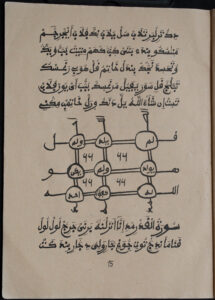African Ajami Scholars Publish New Special Issue in Islamic Africa


The new special issue “Ajami Literacies of Africa” explores the literatures and literacies of four major languages of West Africa: Wolof, Mandinka, Hausa, and Fula, and situates African Ajami studies within participatory multimedia and digital archiving approaches. The double special issue is co-edited by Fallou Ngom, Daivi Rodima-Taylor, David Robinson, and Rebecca Shereikis, and centers around the knowledge generated through the African Ajami research project funded by the National Endowment for the Humanities.
African Ajami literatures hold a wealth of knowledge on the history and intellectual traditions of the region but are largely unknown to the larger public. The history of Ajami refutes the claims that Africa lacks written traditions. The downplaying and devaluing of the significance of African Ajami traditions has long characterized Arab-centric and Eurocentric scholars and administrators of the colonial era, and its legacy persists, perpetuating racial stereotypes, and limiting political and educational participation.
The articles of the special issue establish important historical dimensions of the role of Ajami literacy in mediating grassroots communities that have not yet been systematically studied. They enable unique comparative perspectives on Ajami use in four major West African languages, contributing to the interpretive and contextual analysis of Ajami literacies and their social role. The special issue articles draw on the materials in our African Ajami collections, analyzing various manuscripts and topics and situating them socially and temporally in their communities of origin. The special issue also explores the role of digital technologies and archival methods in studying and preserving African Ajami texts.
The Editorial Introduction by Fallou Ngom, Daivi Rodima-Taylor, and David Robinson discusses the building blocks and historical development of Ajami cultures in West Africa, outlines the collaborative research initiatives that the special issue draws upon, and explores the challenges and opportunities for participatory knowledge-making that accompany the rise of digital technologies in the study of African literatures and literacies. The special issue appears in Islamic Africa volumes 14.2 and 15.1.
Our other ongoing African Ajami research initiatives include the Readers in Ajami project and Digital Preservation of Fuuta Jalon project. General information about on-going African Ajami projects can be found here.
Read more about the special issue here.